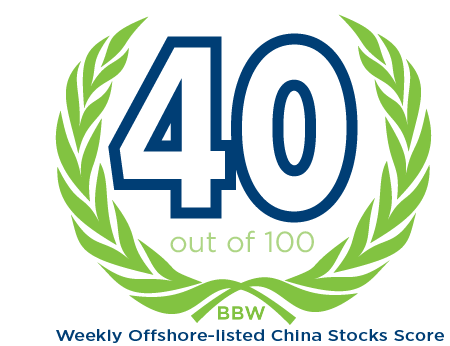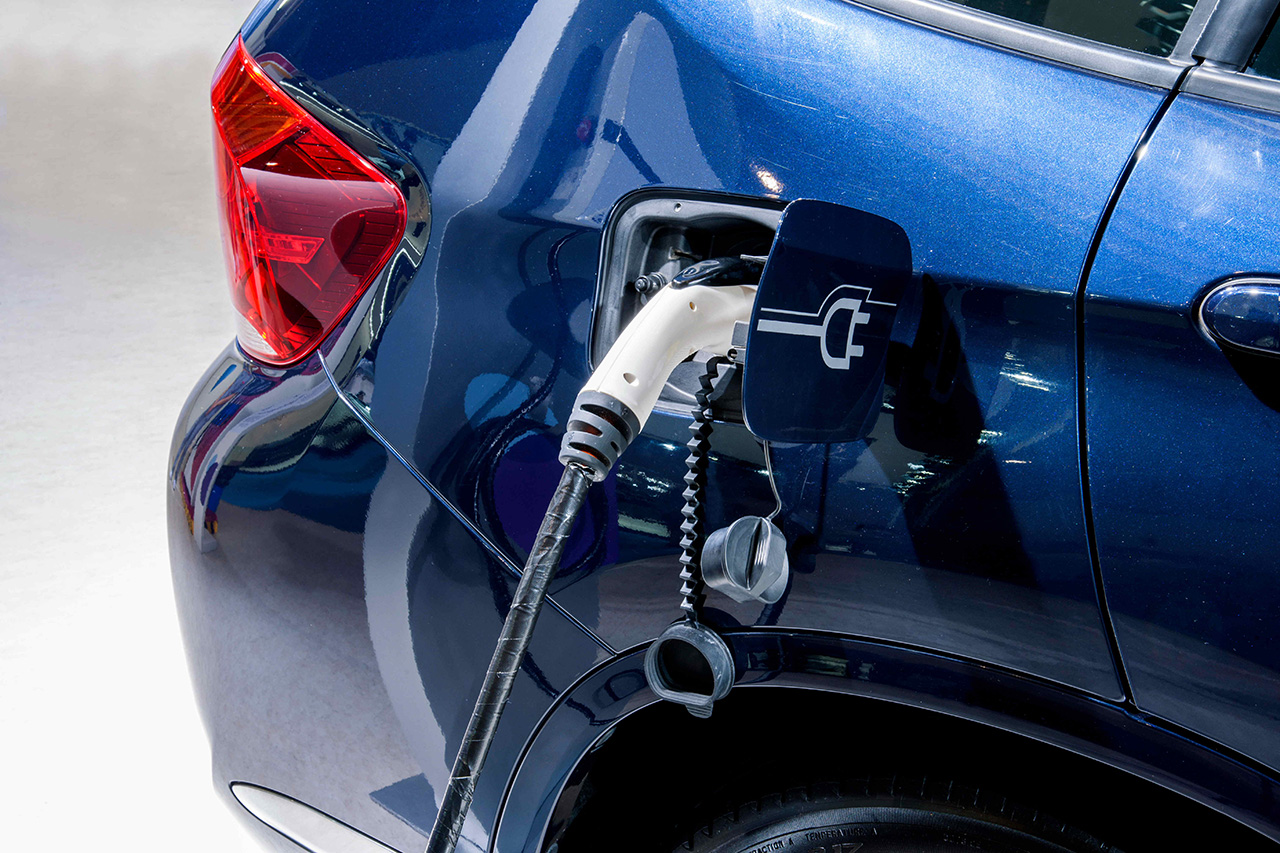CHINA BULLETIN: Weak Economic Signals All Around


In this week’s issue weak signals in trade and inflation, and LinkedIn links out. On a scale of 1 to 100, we give the week a 40 for offshore-listed China stocks.
Doug Young, Editor in Chief
You can sign up to get China Bulletin weekly in your inbox.
MACRO
Weak Economic Signals All Around
A flurry of weak economic signals filled the China radar last week, led by the latest trade data that showed imports fell 7.9% year-on-year in April, accelerating from a 1.9% decline the previous month. At the same time, April’s export growth of 8.5% represented a slowdown from a 14.8% spike in March. Both figures are being interpreted as more signs of a slowing economy.
Separately, new inflation data showed the consumer price index (CPI) rose just 0.1% in April, representing a two-year low. The west would welcome lower inflation right now, but such slow growth of nearly zero would probably be unwelcome even by the Fed. The overall picture is Chinese consumers aren’t spending at home, and demand from abroad is also weak.
More Weakness in Bank Loans, Company Earnings
Economic weakness was reinforced by some smaller signals, including a huge slump in bank loans in April after a lending surge the previous month. At the same time, new estimates from BofA showed that A-share listed company profits rose 3.2% in the first quarter, improving from a 5.7% drop in the previous quarter but still nothing to get too excited about.
Another report found that restaurants and tourism did quite well in the first quarter, while home furnishings and apparel sales declined. The restaurant and tourism boom will almost certainly be short-lived, since the first quarter was the first since China lifted its pandemic controls. The weak spending on ordinary items is probably more indicative of consumer sentiment right now.
Economic Weakness Weighs on China Stocks
With all the weak economic signals, it’s no wonder offshore-listed China stocks turned in a less-than-stellar performance last week. The Hang Seng China Enterprises Index fell 2% for the week, while the iShares MSCI China ETF was down 3.5%. The broader Hang Seng Index also lost 2.1% during the week.
The big news for this group was an update from the PCAOB that gave failing marks to Hong Kong and China-based auditors for U.S.-listed Chinese companies. While that looks bad on the surface, the U.S. securities regulator’s accounting arm pointed out failing marks are common for such auditors that are inspected for the first time, which was the case in this instance.

Industry
Car Sales Perk Up
Not all was gloom and doom on the economic front, with car sales logging 2.1% month-on-month growth in April, according to the latest industry data out last week. Many are choosing to look at the month-on-month figure this time, since the April sales of 1.65 million cars was up 54.5% from a year earlier when many cities, including Shanghai, were under Covid-control lockdowns.
Year-to-date, car sales were still down 1.4% in the first four months of the year compared with the same period of 2022, which isn’t too good when one considers that year-ago figures from March and April were quite bleak. Still, the latest month-on-month increase could indicate demand may be starting to pick up as people begin making big-ticket purchases again.
Strength in Solar
Things were more upbeat on the solar front, with China adding 33.66 GW of grid-connected solar capacity in the first three months of this year, up 155% from the year-ago period. China’s solar panel exports also rose by a healthy 37% in the first quarter, as manufacturers sold 50.9 GW worth of panels overseas, led by strong demand from Europe.
The solar strength isn’t anything new, and is being driven by efforts both in China and abroad to rapidly set up new solar farms to help countries meet their carbon-reduction commitments. And since China is currently the world’s dominant maker of solar panels, this is one particular sector that’s likely to thrive even in the face of a slowing global economy.
Chinese Battery Makers Gain Global Share
In a similar vein to the solar gains, Chinese makers of electric vehicle (EV) batteries are also picking up global market share. Chinese manufacturers supplied 29.6% of the world’s batteries used in EVs in non-China markets in the first three months of the year, expanding their share by 6 percentage points. South Korea is still the leader with 49% share.
This particular trend is likely to accelerate in the short term, as China has built up huge capacity for EV batteries under Beijing’s plans to develop the industry. But we expect to see growing pushback from South Korea and western markets like the U.S., which are taking increasingly aggressive steps to promote these high-growth industries using steps similar to what China does.

Company
LinkedIn Links Out
Professional social networking company LinkedIn is further slimming down its China operations, announcing it will discontinue its local jobs service effective Aug. 9, resulting in the loss of 174 jobs in China. The company emphasized it’s not withdrawing from China, saying it still assists companies in China with their hiring, marketing and training abroad.
LinkedIn made bigger headlines in 2021 when it greatly scaled back its China operations, citing a difficult operating environment. It’s giving similar reasons for the latest pullback, which isn’t that difficult to believe. The reality is that China’s online recruiting services market is quite crowded, and LinkedIn really has nothing special to offer when it comes to domestic jobseekers.
BYD, Hozon Go to Southeast Asia, as Levodo Checks Out
Three new electric vehicle headlines summarize two major trends for China’s overcrowded field of EV makers. Two of those are similar, with industry leader BYD announcing plans to set up a manufacturing facility in Vietnam, while the smaller Hozon said it will make EVs in Thailand. Meanwhile, the little-known mini-EV startup Levodo has officially gone bust.
BYD is emerging as China’s leading EV maker, so it’s not surprising to see it expand its global footprint in a bid to export its success. Hozon is less well known, but is probably hoping its move to Thailand can help it escape the intense competition at home. That competition was obviously too much for little Levodo, and other smaller Chinese EV brands are likely to follow a similar path.
Boeing Confident of China Comeback
Things have been rough for Boeing in China these last few years. First its 737 MAX planes got grounded in the country for several years following software problems that led to two crashes, though the problems were later fixed. Then its woes continued as souring U.S.-China ties led Beijing to increasingly favor planes from rival Airbus.
Now, Boeing’s CEO Dave Calhoun is saying he’s confident China will soon start ordering Boeing’s main line of 737 planes again soon. Calhoun said the reasons are purely practical, since both Boeing and Airbus have full order books at the moment as flying roars back with the end of the pandemic. Thus, he predicts China will need to move soon or potentially end up short of aircraft.
AND FROM THE PAGES OF BAMBOO WORKS
| Fosun Pharma, CanSino Offer ‘Tale of Two Covids’ Last week, we bought you a “Tale of Two Covids,” shining a spotlight on two Chinese drug makers that got nice financial boosters from their Covid vaccines, but are now seeing the impact of that lift fade. The pair are CanSino, which developed its own vaccine, and Fosun Pharma, which got rights to sell BioNTech’s mRNA vaccine in Greater China. Fosun Pharma has emerged in the post-Covid era relatively unscathed, partly because it never got to sell its vaccines in mainland China, even though it reaped big profits from sales in Hong Kong and Macau. But more importantly, Fosun had a strong portfolio of its own drugs before Covid, in sharp contrast to CanSino, which soared to fame on Covid and is now rapidly returning to obscurity. |
| Alibaba’s Global E-Commerce Arm Forced to Sink or Swim Last week we also spotlighted a Bloomberg report saying Alibaba’s global e-commerce unit could become the first to be spun off and separately listed since the company announced plans to split itself into six different parts. A deeper dive into this deal shows it makes the most sense as the first company for such a spinoff, since it consists of several e-commerce services outside China. The only problem is that the unit is losing money, and one of its crown jewels, the Lazada service focused on Southeast Asia, is struggling for attention against local rivals like Shopee. But that may be exactly the point, namely that this unit will now get the autonomy and flexibility it needs to shore up its position and become profitable. |





